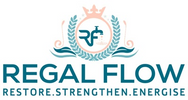
Does a Water Softener Affect Cold Water?
Tired of scrubbing white spots off your shower glass? The short answer is that soft water eliminates the mineral film that makes cleaning a nightmare. By removing calcium and magnesium, you stop limescale before it starts. This means less time scrubbing and more time enjoying a sparkling home. We will explore how these benefits protect your surfaces in our guide, The Benefits of Soft Water: How a Water Softener Protects Your Home.
How Water Softeners Work and Water Temperature
The Ion Exchange Process
Let’s break it down simply. Most water softeners in the UK use a clever trick called ion exchange. Here’s the gist: they swap the minerals that make water ‘hard’, mainly calcium and magnesium, with sodium or potassium ions. These hard minerals are the culprits behind limescale, soap scum, and dull skin. The softener contains a resin bed filled with tiny beads that attract the hard stuff like a magnet. Then, during a regeneration cycle, the system flushes those minerals away using a saltwater rinse.
Water Temperature and the Softening Process
Here’s a fun fact, temperature doesn’t matter when it comes to how the water softener works. Whether it’s icy cold or boiling hot, the softener treats water before it even hits your taps. This means cold water gets the same treatment as hot, straight from the source. It’s like giving your water a spa day, no matter the weather.
The Impact of a Water Softener on Cold Water
Yes, Cold Water is Softened
Here’s the straightforward truth, yes, your cold water is softened too. Unless your home has an unusual setup, the softened water flows through all your taps. That includes your kitchen sink, your outdoor hose, and even your bathroom tap, if it is all connected to the system.
The Softener Treats All Water Entering the House (Usually)
In most modern UK homes, the water softener is installed right where the mains water enters the house. This means it treats everything at the source, hot and cold alike. It’s a one-size-fits-all solution, and in most cases, no separate piping is needed. That said, some people ask plumbers to leave the kitchen cold tap unsoftened for drinking purposes. If you are concerned about sodium content or taste, this is one option, or you could use countertop dispensers and reverse osmosis filters for peace of mind.
No Separate Treatment for Hot and Cold at the Inlet
There’s no internal division of labour here. The softener doesn’t decide “this goes to the boiler, that goes to the fridge”. Once it’s through the softener, it’s all the same softened water, until you choose to heat or chill it. So yes, your cold water gets the same softening benefits as your hot water. No favouritism involved!
Potential Perceptions of Difference
Taste Variations Due to Softening
Here’s where things get personal...taste. Some people say softened water tastes a bit different, maybe smoother, less mineral-y, or even slightly salty (thanks to the sodium used in softening). Others can’t tell the difference at all. If you have got a kettle that is been clinging to limescale like it’s going out of style, you will probably notice an improvement. And if you are a tea drinker, you might find your brew tastes cleaner too.
Feel of Softened Water
Softened cold water feels silkier, even in something as simple as washing your hands. If you’ve ever rinsed apples under a hard water tap and noticed a chalky film, that’s the minerals doing their thing. With softened water, fruit rinses cleaner, hair feels smoother, and your skin won’t dry out as easily.
Benefits of Softened Cold Water
Reduced Scale Buildup in Cold Water Appliances
Cold water appliances suffer just as much as hot ones when it comes to limescale. Fridges with water dispensers, countertop kettles, and ice makers all benefit from scale-free water. That means fewer callouts, less scrubbing, and appliances that last longer without clogs or crusty build-up.
Better Lathering with Soaps Even in Cold Water
Here’s a little perk you might not expect, your shampoo and soap work better in softened water, even cold. You won’t need to squeeze half a bottle of washing-up liquid into the sink just to get some bubbles. Softened water helps soap lather faster and rinse cleaner, which means less residue and better results, whether you are scrubbing dishes or your dog.
Conclusion: Cold Water Benefits from Softening Too
So, does a water softener affect cold water? It absolutely does and for the better. From keeping your appliances cleaner to helping your skin stay soft, the benefits of softened cold water go far beyond just preventing scale in the hot tap. There is no separate rulebook here, if it flows through the softener, it is softened. And if you are thinking of installing one or wondering whether your current system is doing the job, keep this in mind: softened cold water is one of the unsung heroes of everyday comfort. From the feel on your fingers to the taste in your tea, it makes a difference you can see and feel.
🤔 Unsure which product is right for your home? Speak with our friendly support team, real advice, no pressure.
Call us on 0121 630 1130, info@regalflow.co.uk, or click the green WhatsApp icon.
More Water Softener info our customers have found helpful
Top Benefits of Installing a Water Softener in Your Home
Is Soft Water Better for Your Skin?
Can You have a Boiling Water Tap with a Water Softener?
Will a Water Softener Remove Build-up in Pipes?
How Long Does it Take a Water Softener to Clear Pipes?
Can I Run Hot Water Through a Water Softener?
What is the Downside of a Water Softener?


Leave a comment